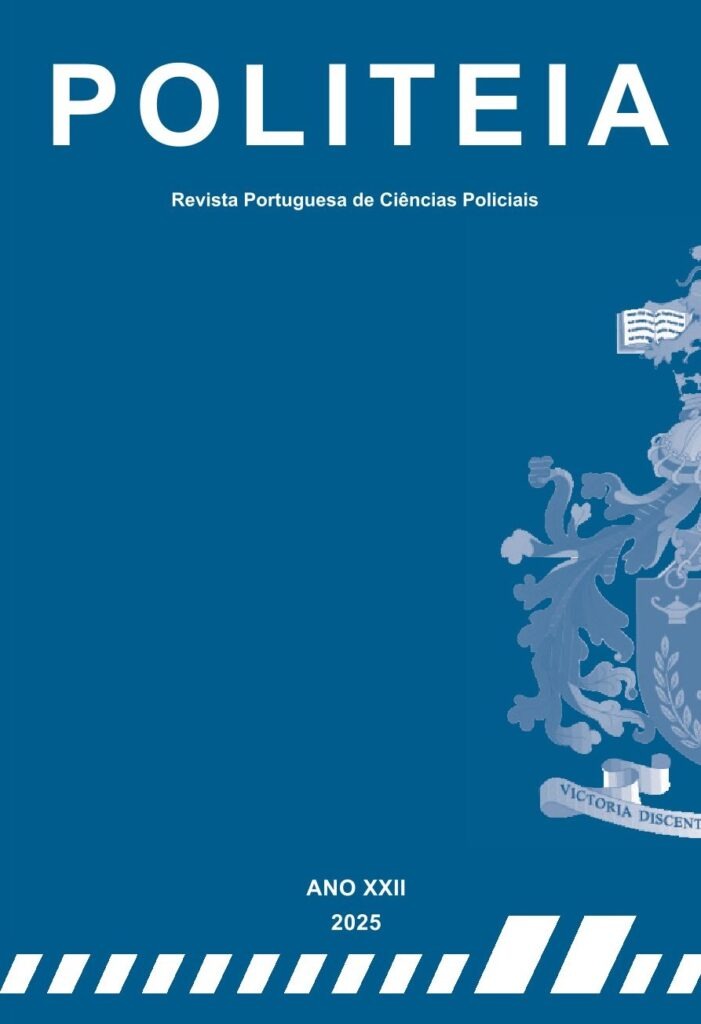As Migrações e um novo rumo de Segurança
Key Words
O objetivo deste trabalho consiste em refletir sobre os mecanismos securitários das migrações irregulares na Europa, como os efeitos negativos das migrações tiveram impacto na segurança interna da União Europeia (UE). Esta ambivalência entre a segurança e migrações ligadas à entrada irregular que estaria presente aquando da chegada do migrante à Europa, entre o humanitário e o securitário. Debruçamo-nos sobre a construção da ideia comum da migração na UE num movimento com avanços e recuos para uma política comum acerca das migrações, tema nem sempre coerente nem de unanimidade numa Europa com diferentes latitudes. A Europa perspetiva uma ameaça ligada às migrações irregulares. Acontecimentos como os fluxos de migração no Mediterrâneo e Balcãs surgem como potenciadores de mudanças securitárias e fizeram emergir uma nova abordagem na Europa. Em perspetiva analisam-se as ferramentas que a EU potenciou de forma a reagir aos fluxos migratórios, ligados à entrada irregular. Se por um lado os instrumentos analíticos dos sistemas de informações da UE são uma ferramenta preciosa para o controlo e vigilância do indivíduo, no reverso da medalha temos a despersonalização do indivíduo.
The scope of this work would be to reflect on the security mechanisms of irregular migration in Europe, as the negative effects of migration had an impact on the internal security of the European Union (EU). This ambivalence between security and migrations linked to the irregular entry that would be present when the migrant arrived in Europe, between the humanitarian and the security. The displacement of people is something that has always been seen historically, with greater or lesser preponderance and motivation. We focus on the construction of the common idea of migration in the EU, in a movement with advances and setbacks towards a common policy on migration, a theme that is not always coherent or unanimous in a Europe with different latitudes. Europe sees a threat linked to irregular migration. Events such as migration flows in the Mediterranean and the Balkans emerge as drivers of security changes and have given rise to a new approach in Europe. In perspective, the tools that the EU leveraged in order to react to migratory flows, linked to irregular entry, were analysed. If, on the one hand, the analytical tools of the EU’s information systems are a precious tool for the control and surveillance of the individual, on the other hand, we have the depersonalization of the individual.
El objetivo de este trabajo sería reflexionar sobre los mecanismos de seguridad de la migración irregular en Europa, ya que los efectos negativos de la migración repercutían en la seguridad interior de la Unión Europea (UE). Esta ambivalência entre seguridad y migraciones ligada a la entrada irregular que estaría presente cuando el migrante llegara a Europa, entre lo humanitario y lo de seguridad. El desplazamiento de personas es algo que siempre se ha visto históricamente, con mayor o menor preponderancia y motivación. Nos centramos en la construcción de la idea común de la migración en la UE en un movimiento con avances y retrocesos hacia una política migratoria común, tema que no siempre es coherente ni unánime en una Europa com distintas latitudes. Europa ve una amenaza vinculada a la migración irregular. Acontecimientos como los flujos migratorios en el Mediterráneo y los Balcanes emergen como impulsores de los cambios en materia de seguridad y han dado lugar a un nuevo enfoque en Europa. En perspectiva, se analizaron las herramientas que aprovechó la UE para reaccionar ante los flujos migratorios, vinculados a la entrada irregular. Si, por un lado, las herramientas analíticas de los sistemas de información de la UE son una herramienta preciosa para el control y vigilancia del individuo, por otro lado, tenemos la despersonalización de este último.
Versão original
Versão original
Outros artigos nesta edição
-
Editorial Note
Rui Manuel Álvaro Marta and Paulo Machado
-
Tipologia dos sistemas policiais: o caso brasileiro
Sérgio Fernandes
-
As diligências do 8.º Intendente Geral da Polícia da Corte e do Reino, Filipe Ferreira de Araújo e Castro, nos primeiros tempos do vintismo [1820-1821]
Eurico Gomes Dias
-
Metodologia BioMenteOperacional: Biofeedback na excelência do desempenho operacional na Polícia de Segurança Pública
Ana Patrão, Maria Luís Mendes, Fernando Passos, Jorge Silva, António Santos, Rui Costa, Anabela Pereira and Cristina Queirós
-
Em torno do Art. 6.º da Lei das ações encobertas
João Gíria
-
As Migrações e um novo rumo de Segurança
Rui Pedro Guerreiro dos Reis
-
O Inquérito sobre Segurança no Espaço Público e Privado. Algumas reflexões.
Paulo Machado
-
Caderno Informativo: Edições do ISCPSI/ICPOL
Luís Miguel Faria de Almeida




